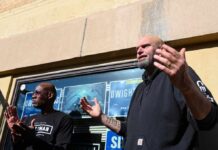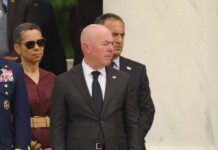
Missouri State University (MSU) is at the center of a heated debate concerning equal access to educational opportunities. A legal watchdog group, the Equal Protection Project (EPP), recently lodged a civil rights complaint against the institution, accusing MSU of excluding white male students from participating in an 8-week “business boot camp.”
This boot camp, touted as an “Early-Stage Business Boot Camp,” is a spring semester offering to support those in the initial stages of establishing a small business. However, according to the EPP, the program’s eligibility was strictly limited to “Black, Indigenous, and Persons of Color” (BIPOC) and women, effectively shutting out white males from participation.
The complaint, lodged with the U.S. Department of Education’s Office for Civil Rights (OCR), alleges that MSU’s program violates the Civil Rights Act of 1964 and the 1972 Title IX Education Amendments. The Civil Rights Act prohibits discrimination based on race, color, or national origin in any federally funded programming. At the same time, Title IX similarly protects against gender-based discrimination.
.@ProtectionEqual is continuing to pursue Missouri State U discrimination: “It’s not enough, when caught, to say ‘oops, sorry.'” https://t.co/WzLRw9jamB
— William A. Jacobson (@wajacobson) June 6, 2023
“OCR should investigate this program and the circumstances under which such a blatantly discriminatory program was approved,” the complaint reads. It urges the OCR to “take all appropriate action to end such discriminatory practices and impose remedial relief.”
The EPP’s complaint stems from the university’s perceived imbalances in access to the business boot camp, which was financially backed by a $30,000 grant from the U.S. Bank Foundation and supplemented by funds from the Missouri Scholarship and Loan Foundation. Notably, participants in the program received a stipend of $3,000 each to defray costs associated with transportation, childcare, and other “business expenses.”
The backlash has forced MSU to defend its actions. In a statement shared with The Heartlander, a Kansas City news publication, a university spokesman justified the program as a “one-time” event to boost minority and women-owned businesses.
Further, the representative assured, “On an ongoing basis, the e-factory will continue to offer the Early-Stage Business Boot Camp Program at no cost to the participants, irrespective of their race and/or gender.”
EPP founder William A. Jacobson welcomed this development but cautioned that more needs to be done. In a statement, he said, “Missouri State also needs to state whether there are any other segregated or discriminatory programs, what investigation it has done to identify such programs, and what specific steps it will take to prevent such misconduct.”
As this case unfolds, it prompts a reevaluation of what constitutes fair and equitable access to educational opportunities, especially those funded by public money. As the university contends with the allegations, Americans nationwide watch on, underscoring the significance of this issue in our ongoing conversation about race, gender, and equal opportunities in higher education.

































